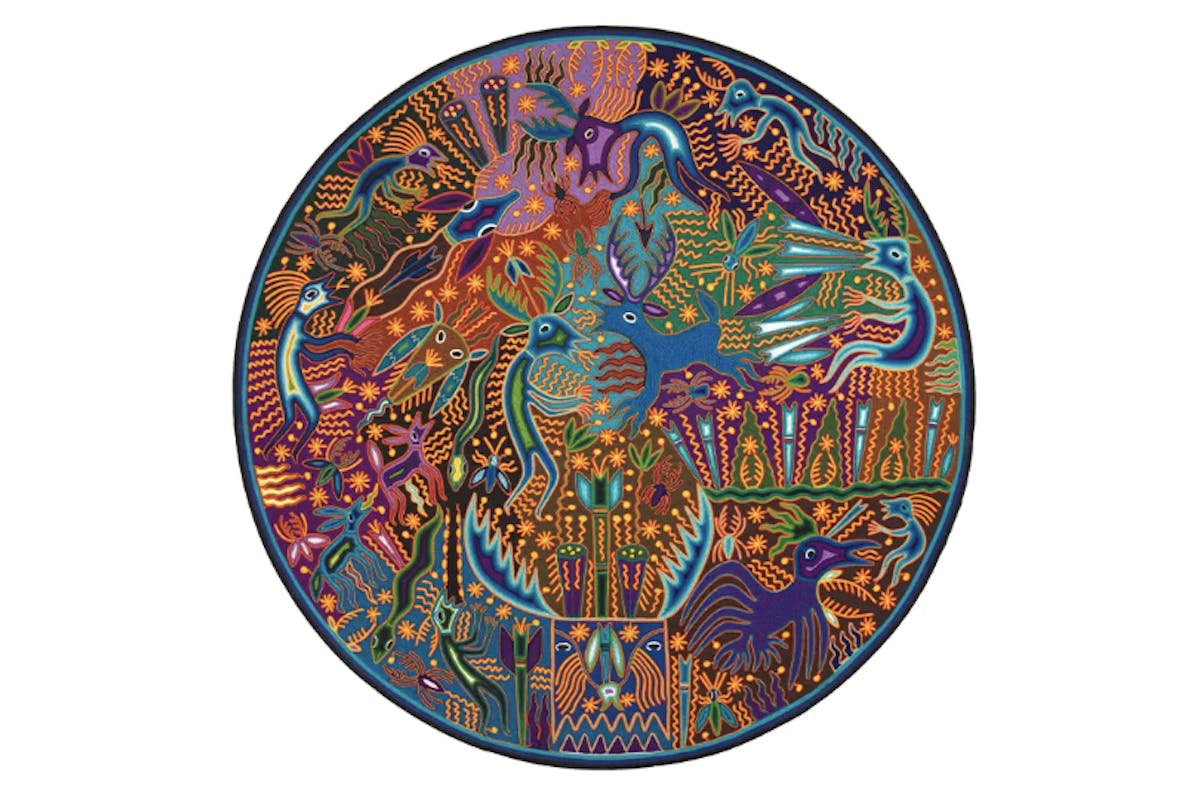Vital Matters: Wixárika Ways of Knowing with Cyndy García-Weyandt
Join us as we continue to exploreJose Benítez Sanchez’suntitlednierikate(“yarn painting”), which depicts vibrant encounters and kinship ties between more-than-human beings and humans.
Thursday, Oct. 27, 11 a.m.
Free

Join us as we continue to explore Jose Benítez Sanchez’s untitled nierikate (“yarn painting”), which depicts vibrant encounters and kinship ties between more-than-human beings and humans. Educator and poeta Cyndy García-Weyandt will share Wixárika ways of knowing and their manifestations in Benítez’s art.
García-Weyandt will discuss how Wixárikas maintain reciprocal relationships, follow protocols of co-existence, and adhere to proper ways of interacting with more-than-human beings. In considering how such communications, kinships, and rituals shape the lives of Wixárikas families, she will draw on Indigenous arts, literature, and conversations with Wixárika families in the city of Tepic, Mexico. García-Weyandt will examine the yarn painting in detail to unpack how Benítez Sanchez’s narratives and representations of more-than-human beings are shaping and influencing contemporary artists and Wixárika’s view of interspecies relations.
This program is generously supported by a grant from Lilly Endowment Inc.
Cyndy García-Weyandt is an assistant professor of critical ethnic studies at Kalamazoo College in Michigan. Her ancestral homeland is situated in San Juan Sayultepec Nochixtlán, Oaxaca, México. A poeta, immigrant, and first-generation college student and now professor, she has earned her bachelor’s degree in anthropology, and her master’s degree and PhD in culture and performance at UCLA. García-Weyandt has taught such courses as “Body, Land and Labor” and “Plant Communication Kinship,” as well as classes that have explored decolonial methods, art activism, race/ethnicity, language revitalization efforts, sources of knowledge, and social change. Her research areas include Indigenous knowledge systems, traditional agricultural practices, urban Indigenous peoples of Mexico, Indigenous art, and performances.
Vital Matters: Stories of Belief
Vital Matters programs explore objects that arouse devotion, awe, or serenity; mediate relationships between human and spiritual realms; and are of vital importance to the cultural heritage of individuals and communities. This series accompanies the new digital educational initiative Vital Matters: Stories of Belief—a platform for sharing different perspectives on devotional works at the Fowler Museum.
Image credit: José Benítez Sánchez, Untitled, 2005; acrylic yarn, beeswax, wood; Fowler Museum at UCLA; Gift of Ronald Lanyi

